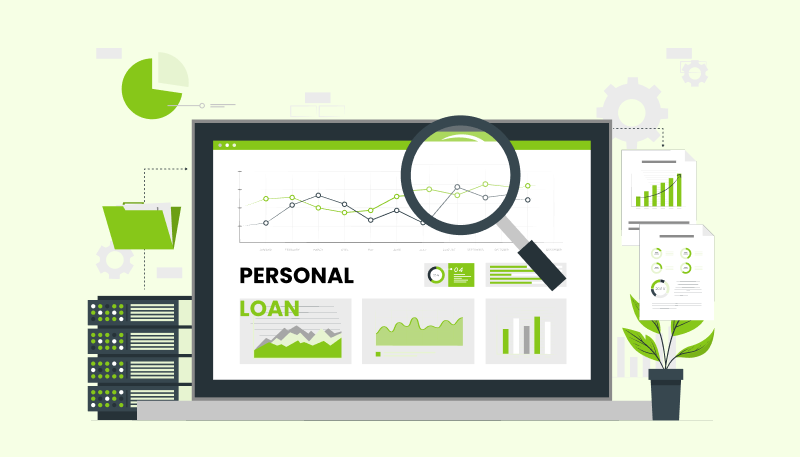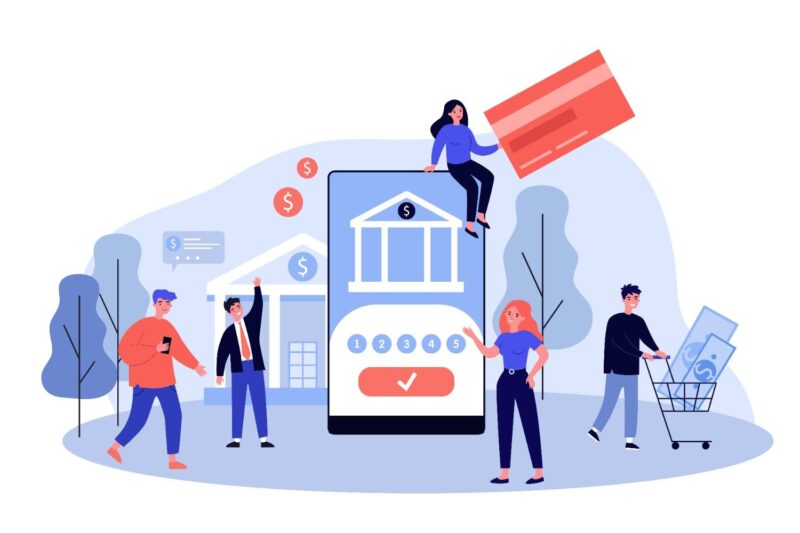Loan eligibility varies depending on the type of loan, personal, home, education, or business, but there are several common parameters that lenders assess. This blog breaks down the key factors determining what is eligibility for a personal loan, as well as general requirements for other loans, so borrowers can prepare confidently. If you’re wondering who is eligible for a personal loan, this guide answers that, along with broader loan types.
What Does Loan Eligibility Mean?

Loan eligibility refers to a borrower’s ability to qualify for a loan based on income, credit history, age, employment status, and more. Lenders use this assessment to minimize risk and ensure repayment capability.
Understanding what is the eligibility for a personal loan or any other type of credit can help you apply more strategically and avoid rejections that affect your credit score.
Common Eligibility Factors Across All Loan Types
| Criteria | Personal Loan | Home Loan | Education Loan | Business Loan |
| Age | 21–60 years | 23–65 years | 18–35 years | 21–65 years |
| Income | Minimum ₹15,000/month | Minimum ₹25,000/month | Family income support is accepted | Business turnover required |
| Credit Score | 650+ preferred | 700+ preferred | 650+ (co-applicant may be required) | 700+ with business IT returns |
| Employment Type | Salaried / Self-employed | Salaried / Self-employed | Student with co-borrower | Self-employed |
| Work Experience/History | 1–2 years min | 3+ years for higher amounts | Proof of admission & expenses required | 3 years in business |
What Is the Eligibility for a Personal Loan?
If you’re specifically asking what is the eligibility for a personal loan, here are the usual conditions:
- Age: Between 21 to 60 years
- Monthly Income: At least ₹15,000 to ₹25,000 depending on city
- Credit Score: Preferably above 650
- Job Stability: At least 1 year with the current employer or 2 years of total work experience
- Debt-to-Income Ratio: Ideally below 40%
These factors help lenders determine who is eligible for a personal loan and under what limits or interest rates.
Who Is Eligible for a Personal Loan in India?

To clarify who is eligible for a personal loan, let’s categorize:
Salaried Individuals:
- Age: 21–60 years
- Income: Min ₹15,000/month
- Work Experience: 1 year
- Credit Score: 650+
Self-Employed Professionals:
- Age: 25–45 years
- Business vintage: 2–3 years
- Income proof: ITRs and bank statements
- Credit Score: 650+
This answers the typical user question: who is eligible for a personal loan, whether you’re salaried or self-employed.
Note: The above eligibility criteria are general guidelines and may vary depending on the lender’s policies and specific requirements.
Tips to Improve Your Loan Eligibility
Whether you’re exploring what is the eligibility for a personal loan or a home loan, the following tips apply across categories:
- Maintain a Good Credit Score (700+ is ideal)
- Pay EMIs on Time to build creditworthiness
- Avoid Frequent Job Changes
- Disclose All Income Sources for better loan offers
- Keep Debt-to-Income Ratio Low
Real-Life Example: Loan Eligibility Snapshot
Let’s assume you’re a salaried professional earning ₹45,000/month in Mumbai.
| Loan Type | Estimated Eligible Amount | Tenure | Key Note |
| Personal Loan | ₹3–5 Lakhs | 1–5 years | The credit score must be 650+ |
| Home Loan | ₹25–35 Lakhs | 10–25 years | Depends on income & CIBIL |
| Education Loan | ₹10–20 Lakhs | Course duration + moratorium | Co-applicant may be required |
| Business Loan | ₹5–15 Lakhs | 1–7 years | Based on turnover & ITRs |
These examples reflect the underlying factors of what is the eligibility for personal loans and other types.
FAQs
Q1: What is the eligibility for a personal loan if I have a low credit score?
You may still qualify through NBFCs, but expect higher interest rates. Improve your credit score for better terms.
Q2: Who is eligible for a personal loan as a freelancer?
If you can show consistent income via ITRs and maintain a 650+ credit score, you can qualify under self-employed criteria.
Q3: Is job stability important for loan eligibility?
Yes. Frequent job switches reduce trust. Most lenders want 6–12 months with your current employer.
Q4: Do students qualify for personal loans?
Not directly. However, if they are earning part-time and meet the eligibility criteria, some lenders may consider them.
Q5: Can joint applications improve eligibility?
Yes, especially for home and education loans. A co-applicant with higher income or better credit enhances your chances.
Conclusion
Loan eligibility in India is governed by key metrics—income, age, credit history, and employment type. Understanding what is the eligibility for a personal loan gives you an edge in application planning. Knowing exactly who is eligible for a personal loan helps avoid rejections and improves your chances of quick approval.




Really useful info. I wonder how freelancers or gig workers fit into these eligibility buckets, especially for personal or business loans? It’d be interesting to see how lenders evaluate income stability in those cases.
This breakdown makes it much easier to compare loan options side by side. I especially appreciate how the table highlights differences in age and income criteria—it’s something many first-time borrowers overlook. It might also be helpful to mention how improving one’s credit score can increase eligibility across multiple loan types, not just personal loans.